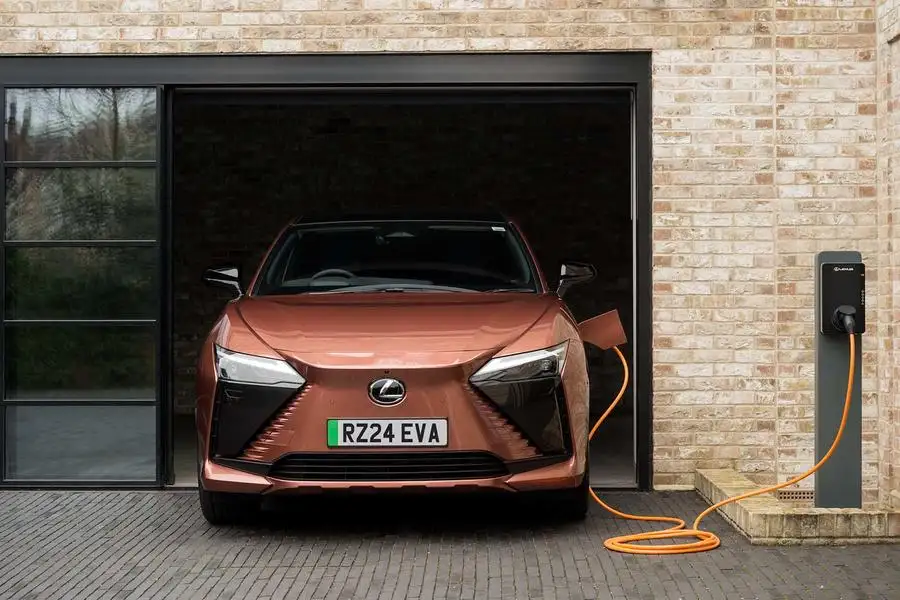Research by Autocar shows car makers are slashing prices of some new electric cars by up to £14,000 in a bid to boost their sales of electric vehicles in the face of flagging consumer interest and to counter the impact of the ZEV mandate, which stipulates that at least 22% of their new car sales in 2024 must be EVs.
Offered in the form of a deposit contribution with a PCP – the most popular finance product among private buyers of new cars – price cuts are effectively being made by most car makers on selected EV models.
The Society of Motor Manufacturers and Traders reported that EV registrations claimed 16.9% of the market in April, compared with 15.4% the year before. However, the increase was driven solely by businesses rather than retail demand.
The SMMT expects this trend to continue and, as a result, has downgraded its forecast for EVs’ share of this year’s market to 19.8% – notably less than the 22% ZEV mandate threshold.
SMMT CEO Mike Hawes said: “The new car market continues to grow, driven primarily by fleet demand. This is particularly true of the electric vehicle sector, where the absence of government incentives for private buyers is having a marked effect. Although attractive deals on EVs are in place, manufacturers cannot fund the mass-market transition single-handedly.”

Exactly how attractive these deals are is revealed by Autocar’s research. A £14,000 contribution is the largest we found and is available on the Audi E-tron GT Quattro. It dwarfs the contributions that Audi is offering on its other EVs but they are also generous: £7750 on the Q8 E-tron and £5750 on the Q4 E-tron.
Audi isn’t alone. BMW is offering contributions that range from £1561 on the i4 eDrive35 M Sport to £4167 on the iX xDrive50 M Sport. Lexus is incentivising its EV sales with contributions of around £6000 on the RZ Takumi and £4500 on the RZ Premium and UX 300e. Volvo is offering an £8000 contribution on the XC40 Recharge.






Join the debate
Add your comment
I dont believe that price is the only factor. All new cars are grossly overpriced today. Its a complete nonesence.
Big discounting is rarely a solution in itself, pissing off the guy who has just bought one at a higher price, and depressing Residual Values, which affects the finance companies leaseing costs.
A short time ago there were 6 Audi RS etron GT's widely reported at a third off list price from a major UK Group! I wonder what this has done for the cars credibility.
I believe that for the average car user, any 'refuelling' which takes more than the current 5 minutes to complete, is a backward step....until that happens their money will go elsewhere. All the other negativity (real or apocryphal), just adds to the unease.
I'm the other end of the spectrum, I live in a flat without home charging and my work place also has no charging, I used to run a Zoe with a max charging speed of 46kw, the need to wait with the car to charge it (once I found a empty charger, not too common outside London) was a major drain on my free time. 20-80% charge took around 50-60 mins. I've gone back to diesel until I can charge at home.
I'm the other end of the spectrum, I live in a flat without home charging and my work place also has no charging, I used to run a Zoe with a max charging speed of 46kw, the need to wait with the car to charge it (once I found a empty charger, not too common outside London) was a major drain on my free time. 20-80% charge took around 50-60 mins. I've gone back to diesel until I can charge at home.
I'm the other end of the spectrum, I live in a flat without home charging and my work place also has no charging, I used to run a Zoe with a max charging speed of 46kw, the need to wait with the car to charge it (once I found a empty charger, not too common outside London) was a major drain on my free time. 20-80% charge took around 50-60 mins. I've gone back to diesel until I can charge at home.
Another day, another 'ev demand falters article! These are almost a daily occurrence now. Where are the 'diesel demand falters' articles I wonder?
Worth remembering that 80% of car sales are of second hand vehicles, and second hand ev sales are up 91%.
Second hand values of all of these cars are already grim and this will push them down even further. Wouldn't be too pleased as an existing owner finding out you car is suddenly worth even less.